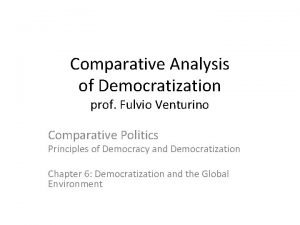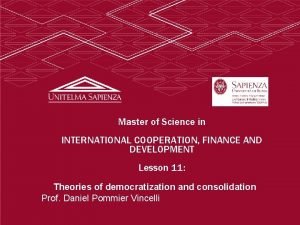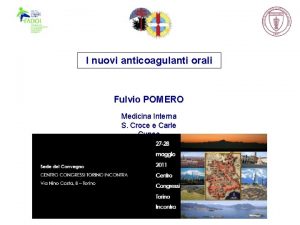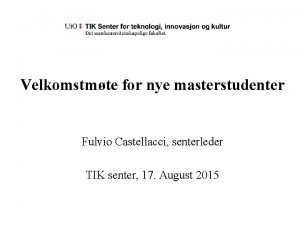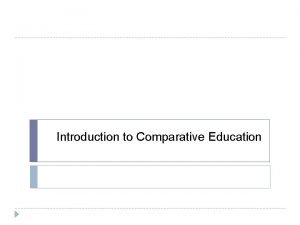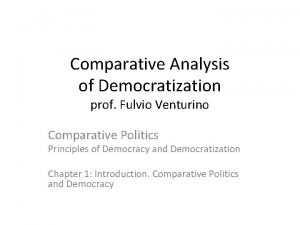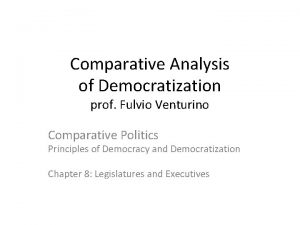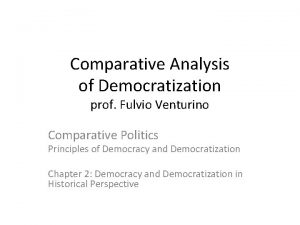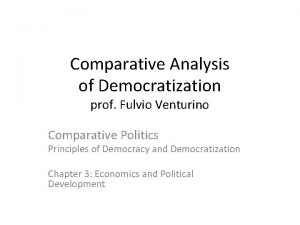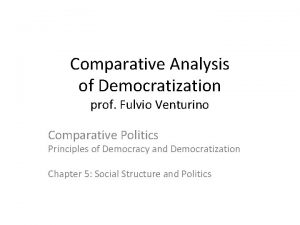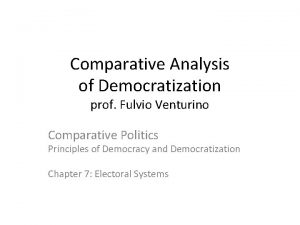Comparative Analysis of Democratization prof Fulvio Venturino Comparative










- Slides: 10

Comparative Analysis of Democratization prof. Fulvio Venturino Comparative Politics Principles of Democracy and Democratization Chapter 1: Introduction. Comparative Politics and Democracy

The key questions • How does one promote the development of political democracy? • What are the factors that help explain the emergence of political democracy?

Democracy and democratization defined • Democracy is a political regime featuring – the existence of free and fair elections – the development of the institutions of civil society – the rule of law – accountable rulers • Democratization is the process by which societies develop toward democracy

Alternative research methods • Experimental: quite rare, and only for specific fields of research (f. i. communication studies) • Statistical: many cases, few variables • Comparative: few cases, many variables

Comparative politics as an approach • As a method of study, comparative politics essentially is based on learning through comparison • As a subject of study, comparative politics focuses on understanding and explaining political phenomena that take place within a political system

Types of comparative designs • Most Similar Systems Design (sometimes knows as Mill’s Method of Difference): it consists of comparing very similar cases which only differ in the dependent variable • Most Different Systems Design (Mill’s Method of Similarity): it consists in comparing very different cases, all of which, however, have in common the same dependent variable

Most Similar (MSSD) and Most Different (MDSD) systems design

Thinking by concepts: typologies • Today we consider democracy a good rule featuring – Government chosen by citizens – Respect of the citizens’ rights

Criticisms against the traditional approach 1. It was parochial on Europe 2. It was descriptive rather than analytical and explanatory 3. It was formal, or almost exclusively focused on institutional actors (legislature, the judiciary, etc. ) rather than taking into account actors outside of institutions (interest groups, individuals, etc. ) 4. It was not comparative at all, but was really dominated by the study of individual countries 5. It was essentially static, and it did not attempt to explain political change

This handbook 1. Introduction: basic concepts on democracy and comparison 2. Long-term trends: chapters 2 to 6 3. Short-term institutional choices: chapters 7 to 9 4. Conclusions
